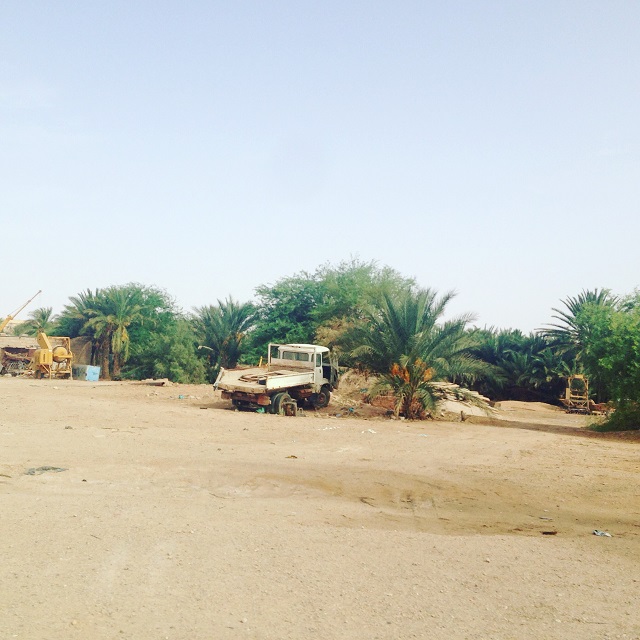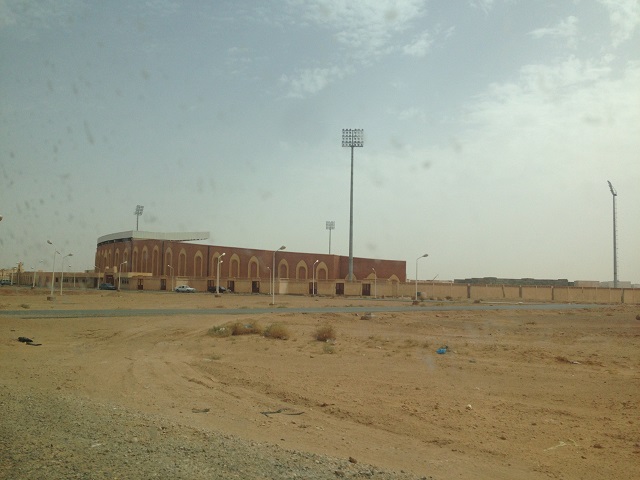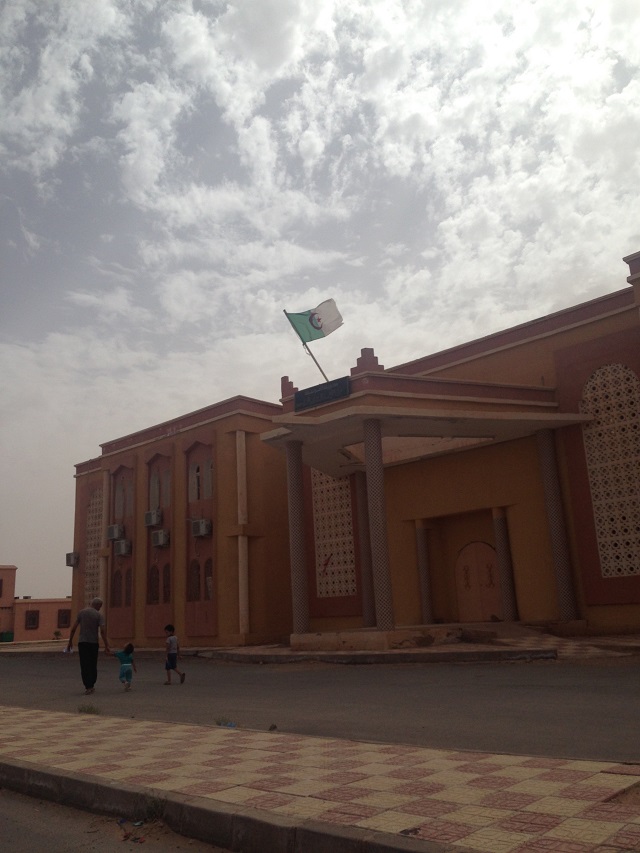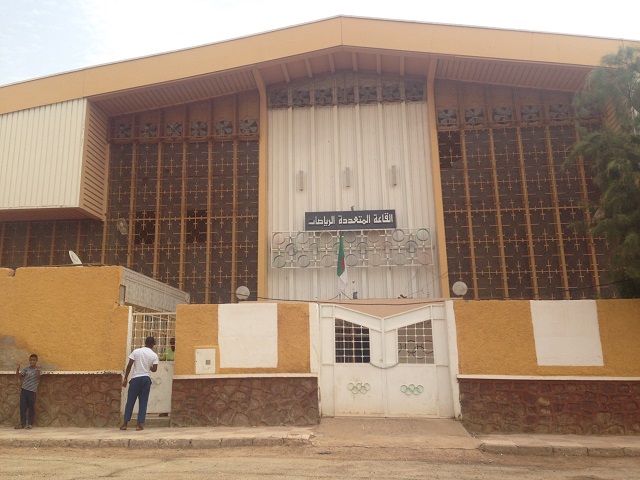Tindouf: A bright spark in Saharawi-Algerian solidarity Photo Essay
New in Ceasefire, Photo Essays - Posted on Wednesday, May 9, 2018 12:00 - 0 Comments
By Agaila Abba
 I remember going to the city of Tindouf as a young child for the first time in 1994. As someone born in the Saharawi refugee camps located in south-western Algeria, about an hour drive from Tindouf, I remember being so excited that I had trouble falling asleep the night before. In the morning, my mother and I got into a shared taxi and, after a short drive, we arrived at Tindouf.
I remember going to the city of Tindouf as a young child for the first time in 1994. As someone born in the Saharawi refugee camps located in south-western Algeria, about an hour drive from Tindouf, I remember being so excited that I had trouble falling asleep the night before. In the morning, my mother and I got into a shared taxi and, after a short drive, we arrived at Tindouf.
However, as we walked down its, streets I was a bit disappointed. The reality of the city was far from what was described to me as a city full of excitement and a vibrant open market, it was supposed to be a city full of stores and streets full of people. To my surprise in the short week I stayed there, I found the streets were not only full of uncollected waste, but militarily controlled.
Historically, Tindouf was a city where the inhabitants survived on a nomadic lifestyle, and its population was 100% Algerian. That all changed when, in 1975, war broke between Western Sahara and Morocco, and half of the Saharawi population, seeking refuge, fled across the Saharawi-Algerian border to Tindouf.
Afterwards, instead of finding a refuge in city itself, the Saharawi people settled in the desert outside it, where the Saharawi refugees were able to build mud houses, tents, schools and hospitals. The space and freedom the Saharawis found in the desert of Tindouf have made both populations, Algerian and Saharawi, live peacefully side by side for the last forty years.

The 1990s (and 1994 in particular) were dark times in Algerian history, as a civil war raged in the north of the country, claiming tens of thousands of lives a year. The Algerian government had its hands full, and Tindouf was essentially forgotten. Building and maintaining key infrastructure, like roads, schools, or simple things like cleaning the streets, had become secondary projects, as the city was reduced to a military base.
In effect, Tindouf not only had its refugee crisis, with a Saharawi population that was basically dependent on international aid, but also a domestic economic crisis for the local Algerian population too. The instability and violence in the north left many too scared to seek better opportunities or employment outside of Tindouf, and led to soaring unemployment rate among the city’s residents.
However, in the aftermath of the civil truce brokered between the Algerian government and Islamist militants at the turn of the millennium, things started to change for Tindouf. Not only did the city’s streets slowly get repaired and cleaned, but jobs were also being created across a variety of sectors. As peace reigned in the North, many Tindouf residents felt safe to pursue their education there.
The Saharawi refugees also began pursuing studies at the various boarding schools dotted across the Algerian territory. Meanwhile, the Algerian government launched a major housing initiative in Tindouf, designed to build as many new houses as would fit in the city, and to encourage the residents to apply for them. The housing programmes, and the job opportunities they brought with them, convinced many Saharawi refugees to make Tindouf their new home, leading to a rich cultural revival in the process.

Last summer, I travelled to Tindouf to visit my family, after 10 years abroad. From the minute I set my foot at the airport, I breathed a different air. Tindouf seemed to have lost its bleak atmosphere. After a brief visit to the camps, I made it to Tindouf itself, where pristine streets now delineated the panorama. The city’s architecture and housing were transformed. The old houses were demolished, and new homes were built in their place.
The city’s economic boom produced a mushrooming of shops, markets, as well as exportation and importation businesses. More companies were now being based in Tindouf, a shot in the arm for the local and regional employment market. As I travelled from Algiers to Tindouf, I had the chance to discuss with many Algerians making the same journey in search of job opportunities.
In terms of social changes, Tindouf has been in a transitional state for the past few years. More Saharawis are moving into the city and adopting not only the Algerian dialect, but also a new way of life. This has been greeted with welcoming arms by the city’s Algerian community, which has embraced the presence and blending-in of the Saharawi culture, including their way of dressing, speaking and, last but not least, the unique Saharawi tea ceremony.

Furthermore, this social and cultural transition has led to an increase in inter-marriages between the Algerian and Saharawi communities, making the city not only more diverse, but also rich from the blending and integration of two cultures.
After making considerable strides towards promoting economic development, Tindouf has made tremendous progress. Not only has the city grown in terms of housing and infrastructure, with the construction of hospitals and clinics, water parks, and bus stations, but it has seen an influx of jobs being created across different sectors. Most notably, this saw the city’s first university, offering four degree programmes, with more to come.
This wave of economic development has made room for people from all over the country to make Tindouf their home, despite the region’s often harsh weather. The city’s new transportation project, and a free approach to entrepreneurship, have not only made life easier for Tindouf residents, but also offer hope for a brighter economic and social prospects.
It is only a matter of time before the social and economic developments of Tindouf make the city a standard bearer for progress for the rest of Algeria.


Leave a Reply